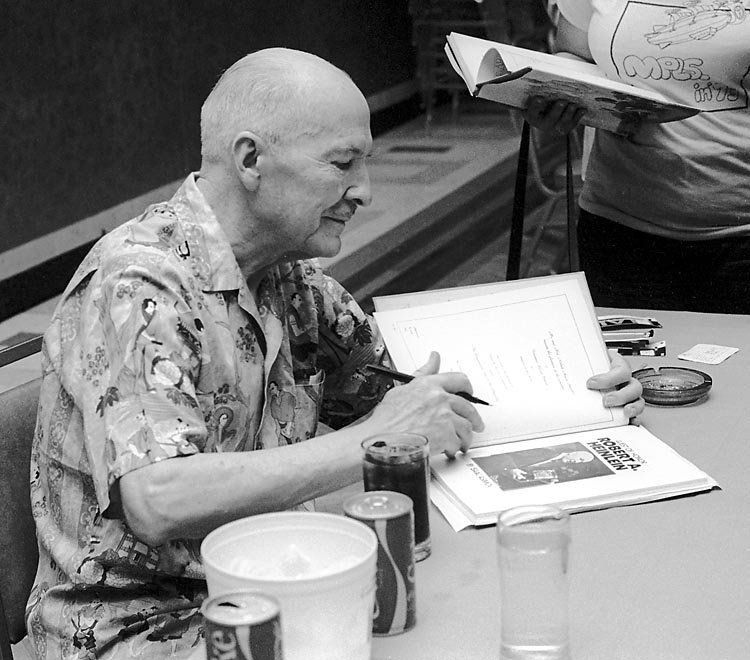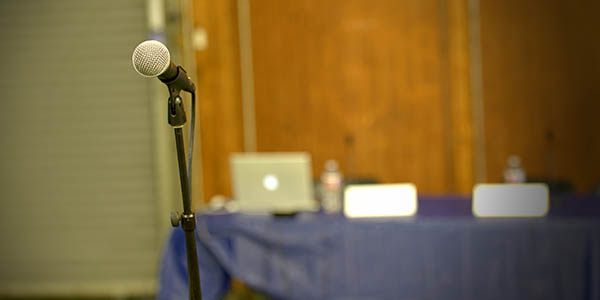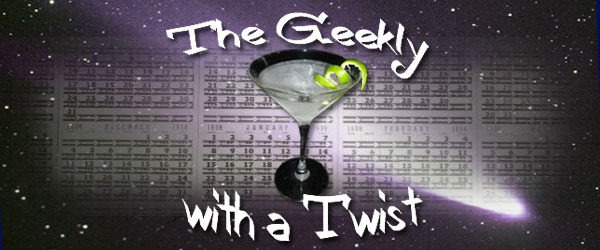Worldcon: The Oldest Sci-Fi Convention? It Depends

[Featured image by Guillaume Paumier, licensed under a Creative Commons Attribution-Share Alike license]
When MidAmeriCon II throws opens its doors in Kansas City this August (MidAmeriCon I having come in 1976), it will mark the 74th World Science Fiction Convention since its inaugural year in 1939 (if you’re wondering why the numbers don’t add up, it’s because there were no Worldcons from 1942 to 1945 as everyone was … otherwise occupied). It is certainly the longest continuously-running sci-fi convention, and set the mold for all others to follow. It is a direct descendant of the early gatherings of SF enthusiasts along the eastern seaboard in the late 1930s which spawned the convention boom. These get-togethers are regarded by many as the very first science fiction conventions ever.
Unfortunately, whether this is actually the case is not exactly cut-and-dried.
Related~ LIVE FROM THE BUNKER: Ruth Lichtwardt Talks Worldcon 74
The history of sci-fi conventions is a bit nebulous. What we do know is that on October 22, 1936, about a dozen or so enthusiasts gathered in Philadelphia at the home of Milton A. Rothman. It was a single-day affair, and only a very small crowd, but the attendees nevertheless declared themselves the first ever science fiction convention. This gathering led to two others, the “Second” and “Third Eastern” gatherings, and finally the “First National”, which took place in Newark and had over one hundred attendees. It was here that a committee was established to create the first Worldcon for 1939, to coincide with the World’s Fair taking place that year.
All very straightforward. However, another gathering has held forth their claim to the title for quite a long time, and their case has been strong enough to make them a serious contender. On January 3, 1937, in the town of Leeds, about fourteen to twenty enthusiasts (including a young Arthur C. Clarke) gathered together for what they considered to be the first convention. Persons in the Leeds corner contend that the Philadelphia gathering does not count because A) it was in a private home, rather than in a public gathering space, B) it was sparsely attended, with not enough people for a “real” convention, and C) the Philadelphia gathering was (or at least is characterized as) spur-of-the-moment, whereas the Leeds gathering had been in the works for some time.
Things really came to a head in the mid 80’s, when the committees for the 1986 (Atlanta) and 1987 (Brighton) conventions vied for the honor of being declared the 50th anniversary of the first ever sci-fi convention. The fight has been in more or less a steady state of ebb and flow ever since, and is due to pick up again in around five years when the 75th anniversary arrives — or doesn’t.

So which is right? It is not our wish to get mixed up in the controversy, but we will note that of the arguments given in favor of Leeds, B and C may fairly be considered less than compelling. Conventions have started extremely small before, but that does not take away their legitimacy. Furthermore, when both conventions started so small, the difference must really be considered too negligible to be a deciding factor. As to the planning involved, we are unaware of any minimal amount (or duration) of planning for a convention to be considered “real”. Granted, we’ve been to any number of conventions where the planning was clearly Not Enough, but nevertheless, conventions they were.
But then there’s A. The argument that a private gathering in a person’s home cannot quite be considered a convention is an intriguing one, and tends to bring out the hair-splitter in one. Yes, they did gather, but did they convene? Does the concept of a convention automatically preclude using someone’s private residence? If J. J. Abrams invites 1,000 of his closest friends to come over and talk about Star Wars, is that a convention or merely a noise violation? The Philadelphia gathering was a private affair; the Leeds one in theory open to anyone who cared to show up. This, to this writer, is the core question, and the one that seems to have no ready answer.
In the end, it really depends on your definitions. A compromise of sorts has arisen over the years, allowing that Philadelphia was the first actual gathering for sci-fi enthusiasts, while Leeds was the first formal convention per se. This seems about as reasonable a compromise as one is likely to get in the wonderful world of fandom, so probably it’s best to leave it there.
In the meantime, what is absolutely certain is that at nearly three-quarters of a century on, the World Science Fiction Convention is still the grandaddy of them all. As innumerable cons have come, flamed out and gone, Worldcon soldiers on. To attend is to partake, in even a small way, in the history of the fandom, stretching — if not absolutely to the beginning — to the very roots of the fandom that we love.
For full details on this year’s con, visit their website.
For more coverage on Worldcon, check out this link for articles and interviews.
Kelly Luck is looking forward to the 100th anniversary in 2036/37 where she plans to hobble around and complain about how modern fandom Ruins Everything Forever. Her other SciFi4Me work can be read here.
![]()




